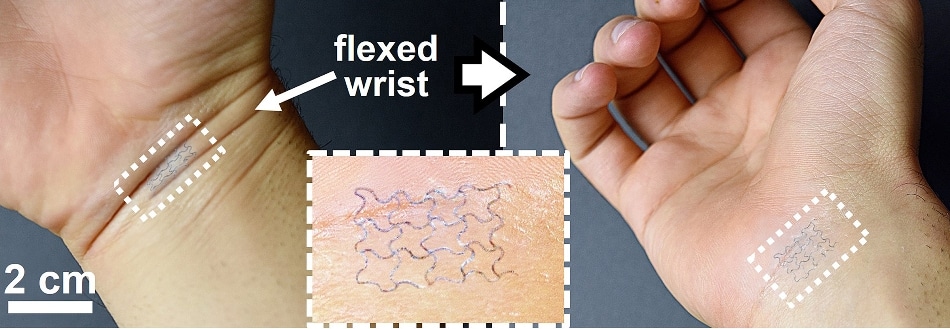Oct 17 2018
Heart surgery can be stressful for patients and can be extremely stressful for patients who have to monitor their status at home, without a doctor present.
Now, researchers at Purdue University have developed a skin sticker that can monitor a patient's condition continuously.
 Image credit: Ramses Martinez/Purdue University.
Image credit: Ramses Martinez/Purdue University.
Researchers from Purdue University have developed a sticker solution making it very close to reality. The study was recently published in ACS Applied Materials & Interfaces.
For the first time, we have created wearable electronic devices that someone can easily attach to their skin and are made out of paper to lower the cost of personalized medicine."
Ramses Martinez, Research Lead
Their technology coincides with Purdue’s Giant Leaps celebration, which will recognize the global advancements made by the university in the healthcare sector.
The “smart stickers” are formed of cellulose, which is breathable and biocompatible.
They can be employed to monitor physical activity and alert a wearer on probable health risks in real-time.
Health professionals could use the stickers as implantable sensors for patients with sleep disorders, as the technology is able to monitor internal organs without adverse reaction.
The technology could also be used by athletes to monitor their physiological status while swimming and exercising.
Mounting EPEDs Epidermal Paper Based Electronics on skin
The pattern of the stickers is serpentine in shape to make the devices as stretchable and thin as skin, rendering them imperceptible for the wearer.
Due to the fact that paper rapidly degrades upon contact with water and human skin is often sweaty, the researchers coated the stickers with molecules that repel water, dust, oil.
The cost of production of each sticker is about a nickel, and they can be produced using printing and manufacturing technologies analogous to those used to print books at high speed.
The low cost of these wearable devices and their compatibility with large-scale manufacturing techniques will enable the quick adoption of these new fully disposable, wearable sensors in a variety of healthcare applications requiring single-use diagnostic systems."
Ramses Martinez, Research Lead